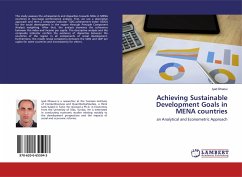During the past two decades, there has been a wave global reform which significantly affected both the market structure and institutions in infrastructure industries, including high-tech sectors such as telecommunications, electricity and more traditional areas such as water and postal services. Moreover, the fundamental political task is to reshape the legal and regulatory framework in order to generate economic incentives in these sectors. And more specifically, it is encouraging operators to improve their offers in terms of cost-effectiveness, quality of service and rates report. The industrial model takes into account three sequential performance records: product quality, productivity and profitability. However, this model takes into account a concept of reduced performance for short and medium term (2009 Tertre). Economic reforms can not be fully effective in the absence of effective, credible and transparent rules.
Bitte wählen Sie Ihr Anliegen aus.
Rechnungen
Retourenschein anfordern
Bestellstatus
Storno








